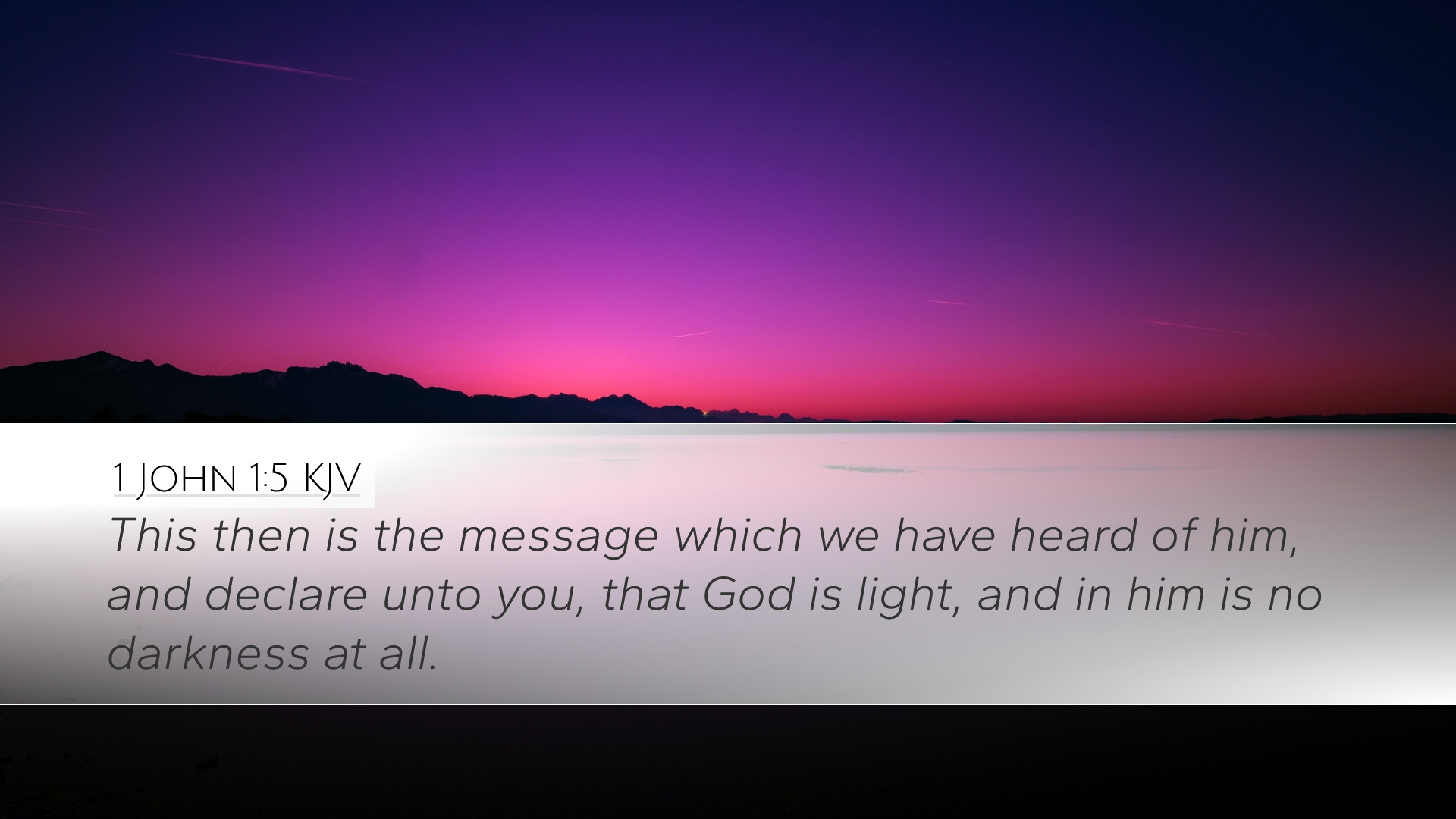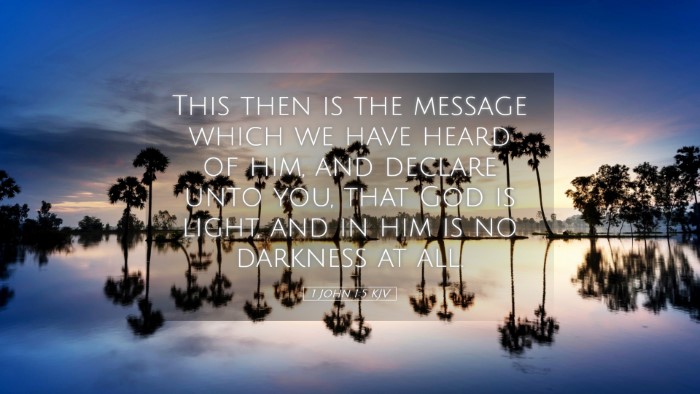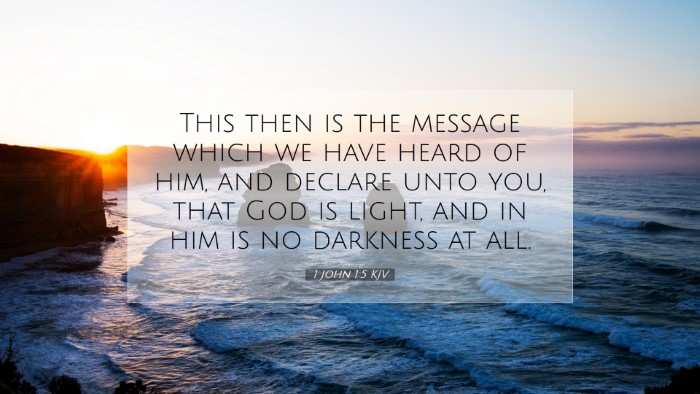Old Testament
Genesis Exodus Leviticus Numbers Deuteronomy Joshua Judges Ruth 1 Samuel 2 Samuel 1 Kings 2 Kings 1 Chronicles 2 Chronicles Ezra Nehemiah Esther Job Psalms Proverbs Ecclesiastes Song of Solomon Isaiah Jeremiah Lamentations Ezekiel Daniel Hosea Joel Amos Obadiah Jonah Micah Nahum Habakkuk Zephaniah Haggai Zechariah Malachi1 John 1:5
1 John 1:5 KJV
This then is the message which we have heard of him, and declare unto you, that God is light, and in him is no darkness at all.
1 John 1:5 Bible Commentary
Commentary on 1 John 1:5
Verse Text: "This then is the message which we have heard of him, and declare unto you, that God is light, and in him is no darkness at all." (1 John 1:5, KJV)
Introduction
The Apostle John begins his first epistle with profound theological implications regarding the nature of God, particularly emphasizing His holiness and purity as embodied in the metaphor of light. This verse serves as a foundational declaration that sets the stage for understanding divine attributes and the implications for believers.
Exegesis of the Text
"This then is the message which we have heard of him, and declare unto you"
- John asserts authority in his teaching, as he conveys a message that originated from Christ Himself. This highlights the apostolic tradition and continuity of divine revelation.
- The phrasing indicates a communal experience of hearing from Christ, reinforcing the role of fellowship among believers in understanding and declaring truth.
"that God is light"
- The metaphor of light is rich in meaning, symbolizing purity, holiness, and moral clarity. As Matthew Henry elucidates, light is devoid of corruption, representing the divine nature of God—it is not merely a characteristic but encompasses His very being.
- Albert Barnes emphasizes that light dispels darkness, indicating God's active role in revealing truth and exposing sin. The light of God signifies guidance for believers, offering clarity in a morally complex world.
"and in him is no darkness at all"
- Adam Clarke notes that the absence of darkness in God emphasizes His absolute perfection. Darkness, often associated with sin and evil, cannot coexist with God's nature, reinforcing the theological distinction between God and the fallen world.
- The duality of light and darkness operates as a vital theme throughout Scripture, as John further elaborates in his epistle and Gospel. This verse serves to frame ongoing discussions about sin, righteousness, and the implications of living in the light of God's truth.
Theological Implications
The proclamation that "God is light" carries significant weight for Christian doctrine and ethics:
- Understanding Sin: Recognizing God as light calls believers to repentance. The clarity of God’s holiness accentuates human sinfulness, allowing for a proper response of humility and confession.
- Living in Light: The call to walk in the light is one of the central themes of 1 John. If God is light, then believers are invited to partake in this divine reality, reflecting God's character in their lives.
- The Community of Believers: The mutual sharing of the message of light fosters unity among believers. As communal living is framed within the understanding of God’s light, it promotes accountability and integrity.
Practical Application
For pastors, students, theologians, and Bible scholars:
- Personal Reflection: Consider your personal relationship with God. Are you living in a manner that reflects His light? Evaluate areas where darkness may creep into life and seek to align with His holiness.
- Preaching and Teaching: When expounding on the nature of God, incorporate this fundamental attribute of God as light. Facilitate discussions that explore what it means for believers to walk in the light, sharing practical ways to do so.
- Theological Discussions: Engage in scholarly conversations about the implications of God’s light in relation to theological constructs such as salvation, sanctification, and communal life in the Church.
Conclusion
1 John 1:5 encapsulates profound truths about the nature of God that are vital for the believer's life. The invitation to walk in the light not only calls for a personal response but also emphasizes the communal aspect of faith. Reflecting on the light of God encourages believers to pursue holiness, engage in intimate fellowship, and proclaim the transformative message of the Gospel to the world around them.


